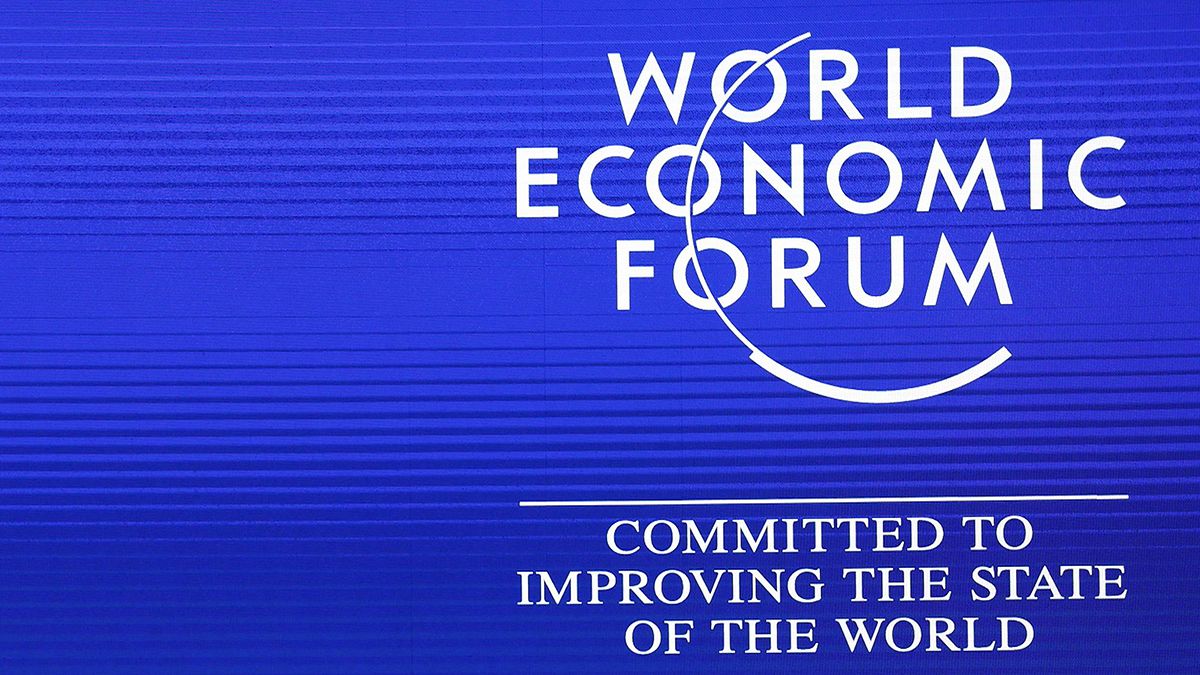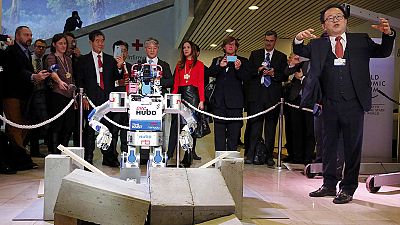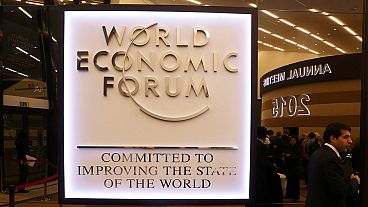Europe begins 2015 mired in economic stagnation, unemployment and political uncertainty.
The European Central Bank is under pressure to take major action to revive the EU’s struggling economies.
Debate over whether the Bank should create billions of euros to kick-start growth dominated discussions as Davos got underway.
In an interview with euronews (see video above), Ángel Gurría, Secretary-General of the Organisation for Economic Co-operation and Development, said that it was time to stop talking and begin immediately a programme of quantative easing, or printing money to buy up assets and inject cash into the economy.
Nariman Behravesh, Chief Economist at IHS, explained the situation.
“The problem in Europe was not so much austerity itself, it was the combination of austerity and, essentially, monetary policy that in the end was too tight – or not loose enough. So that combination really hurt European growth, so you had two years of negative growth,” Behravesh told euronews reporter Sarah Chappell at the annual meeting of global policymakers and financiers in Davos.
“In the US, for example, in contrast, you (they) had austerity – there is no question, you (the US) had austerity – but there you had very loose monetary policy. So the US was able to avoid the fate of Europe. So, you cannot have tight monetary policy and tight fiscal policy at the same time. That is the lesson, in the end, from Europe,” Behravesh added.
Normally the central bank would try to stimulate the economy by cutting interest rates, but with the benchmark borrowing cost already at a record low of 0.5% many, including the OECD’s Gurria, believe it’s time for a more radical approach.
Normally the central bank would try to stimulate the economy by cutting interest rates, but with the benchmark borrowing cost already at a record low of 0.05% many, including the OECD’s Gurria, believe it’s time for a more radical approach.
Ángel Gurría: ‘yes to ECB stimulus’
Isabelle Kumar, euronews: “Ángel Gurría, Italy’s Prime Minister Matteo Renzi has said here in Davos that an ECB stimulus package could really give Europe a shove in the right direction, economically speaking. Your take on that?”
Ángel Gurría, Secretary-General of the Organisation for Economic Co-operation and Development (OECD): “Of course, and I would say get on with it, right away. Let’s stop discussing whether it is going to be enough or not enough, or if it is going to be good enough. There are restrictions. They [leaders] don’t have the same conditions; the governance is more complicated. The instruments which he has to work with are not as simple — you know it is not just one country and one instrument. But let’s get on with it, and then we will see if it goes far enough.
“We may need to go further in that direction. I would not cap it, for example, I would not speak about a limit, but I know [European Central Bank President] Mario Draghi has some restrictions. So I’d go on with it. That will stop the discussion whether or not it is enough, and just say okay, maybe now. And people lose the fear too, fear of flying… once you have done it you see that nothing [bad] happens, that it is working, and moving in the right direction. So I would say: ‘yes’ [to an ECB stimulus package].”
euronews: “So we have got our three big hitters here. We have got Matteo Renzi, the Italian Prime Minister, Angela Merkel, the German Chancellor, and also French President François Hollande. Do you have the confidence in them that they will do what it takes this year?”
Gurría: “Well, first of all, I think that the countries that have been under market pressure — that includes Italy, Spain, Greece, Ireland and Portugal — are the ones who have been doing more structural change. I have to say that Italy is belatedly — [although] not at the same speed — doing things now. And Mr Renzi not only has the political backing but also the decision[-making ability], the courage.
“Frankly, I think they are getting results because they did it. Why is Spain turning around? Because they did very tough things two years ago, three years ago. Now they are growing, unemployment is coming down. So reform works, but you must do it well — you go deep, you go far, and you also give it time. It is not going to happen overnight.”
euronews: “This year we have two big elections, potentially, for Europe — in Greece this month, and in Spain. If two anti-austerity parties came to power, what would that mean?”
Gurría: “This is not about austerity against growth. This is a false dilemma. This is about how much fiscal consolidation you need, and I stress the word ‘need’, and that depends on the market’s perception but also objective perception.
“And how do you use the limited room that countries have these days in order to stimulate? How do you use the limited room you have in very tight budgets in order to ‘go structural’? …And at the same time make sure that you pick up the victims, the people who are more vulnerable. There are millions of them around the world, because this has been the biggest crisis we have ever seen in our lifetimes.”
Follow @Isabelle_kumar!function(d,s,id){var js,fjs=d.getElementsByTagName(s)0,p=/^http:/.test(d.location)?‘http’:‘https’;if(!d.getElementById(id)){js=d.createElement(s);js.id=id;js.src=p+’://platform.twitter.com/widgets.js’;fjs.parentNode.insertBefore(js,fjs);}}(document, ‘script’, ‘twitter-wjs’); Follow @SLeandaC!function(d,s,id){var js,fjs=d.getElementsByTagName(s)0,p=/^http:/.test(d.location)?‘http’:‘https’;if(!d.getElementById(id)){js=d.createElement(s);js.id=id;js.src=p+’://platform.twitter.com/widgets.js’;fjs.parentNode.insertBefore(js,fjs);}}(document, ‘script’, ‘twitter-wjs’);



